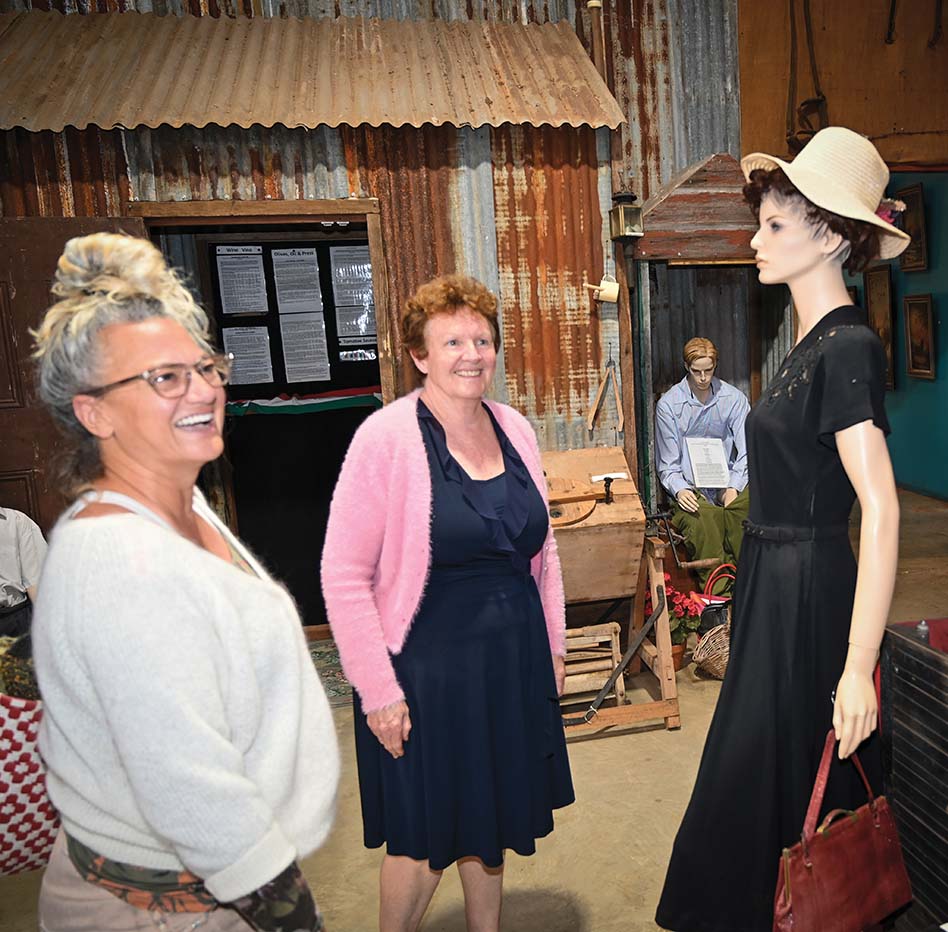

The current exhibition in the Shed is the Italian Contribution to the Establishment of Balingup in the years 1865 through to 1962. It shows us a little of the life journey taken by Italian families leaving their homeland during the time before the first World War, through the depression years then after the second World War to build a better life for themselves in the South West of Western Australia and here in Balingup and Mullalyup.
Many who arrived to make a new life in Australia were married, and had to leave behind their parents, wives and young children (to make a new life in Australia,) in the hope their families would eventually be able to join them in a country which offered far better opportunities.
Their stories are all varied, some were sponsored by earlier arrivals and had somewhere to go, others made their own way. On arrival at Fremantle some went on to learn a trade or worked in the timber industry, in particular cutting sleepers for the railway and mining industries. Others worked in orchards, all those who worked here were always sending money back to support their families in Italy.
These hard-working migrants were separated from their loved ones for long periods, some for seven years, sometimes ten years.
Many of the Italian migrants went on to eventually own their own farms and then were able to pay the passage for their loved ones so they could be reunited as a family.
When the families did arrive, there were many difficulties to overcome such as language, isolation, and culture, particularly for the wives.
Their new life in Australia could not have been any more austere. Below is a passage from one of their stories which tells the tale of an Italian migrant Vittorio from Messina in Italy who arrived in the south west in 1928. He is famously remembered for having a ‘never giving up’ attitude, a resilience which was needed to be successful in forging a new life in a developing country.
Vittorio had lived and worked in the south west for eight years, during that time he saved enough money to buy a property, on which he grew vegetables and then was able to sell them at his shop in Balingup, having finally saved enough money to bring his family out to Australia to join him.
In 1936 Vittorio’s wife Maria and son Napolini, who was eight years old and the young son Vittorio had not yet seen, arrived in Fremantle on board the ship ‘Esquilino’.
Vittorio had not received the letter informing him of their arrival times and was not there to greet them on their arrival. Mail to Italy took six weeks. Eventually though, he was able to reunite with them after they travelled by train to Balingup.
On arrival at the property Maria was very disappointed with the house which was not very appealing. It consisted of four small rooms and was made from jarrah face cuts, it had a dirt floor in the kitchen, unlined weatherboards on the walls and railway sleepers for flooring with three very small windows that did not open. A very sad depressing situation to be greeted with, after travelling half way around the world.
As time went by Maria began to adapt to life and improved their house, using bags for curtains and for insulating the walls. Cleaning was almost impossible, with no running water, only a tub which was used as a bath with the washing up done in a dish. She had a very old wood stove which had holes in its oven. She even had to make her own soap.
Both Maria and young Napolini worked hard on the land and helped in the garden while Vittorio made deliveries to his shop and customers. Napolini attended the Lower Balingup School where he learnt to speak English and made friends with the other children.
During the second world war, many Italian immigrants were interned as ‘enemy aliens’ and were sent to internment camps around the South West. Those whose wives were here, were left to run the farm or family business. While, of the men who were interned some were allowed out to work on farms and those left behind were able to grow vegetables for the camps.
Whilst the stories of every Balingup/ Mullalyup family could not be collected, it is hoped you enjoy reading about the journey of these courageous people.
Many of these families are still living in our community today.
The exhibition will run for six months. If you know of anyone who may like to contribute information to this current exhibit, please phone Helen 97641291 or Noelene 97641080
This Story was published on November 1st 2022
In Issue 326 of The Mailbag
© The Quality Shop 125 Hampton Street Bridgetown Western Australia 6255
mailbag@thequalityshop.com.au